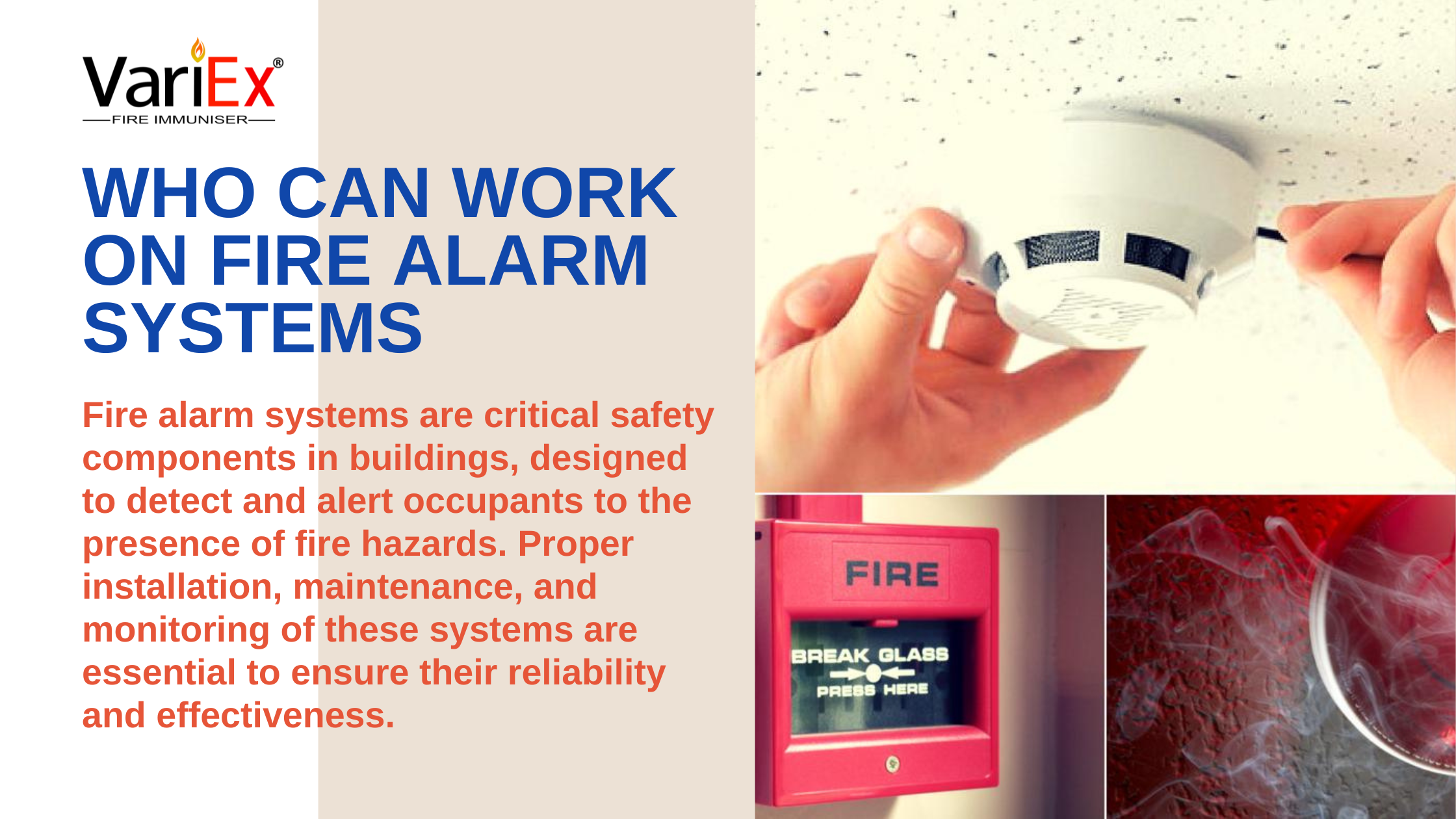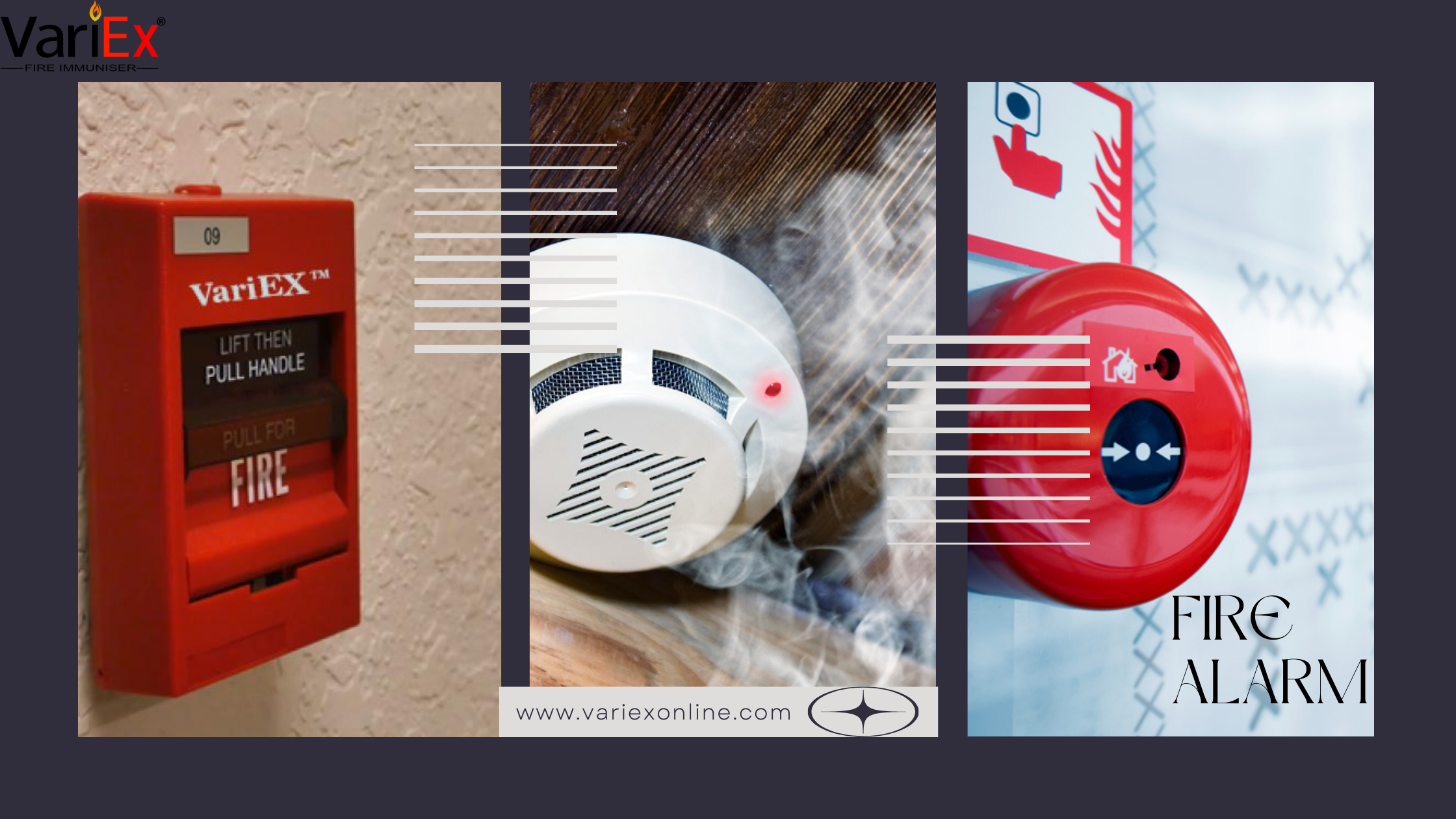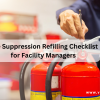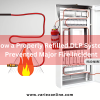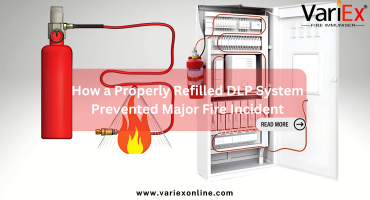![]()
Fire Immuniser
+91-7829629111
Email: info@variex.in
Varistor Technologies Pvt. Ltd.
Block-1, First Floor, Ardente Office One, Hoodi Circle, ITPL Main Road, Bengaluru, Karnataka 560048, IN
Who Can Work On Fire Alarm Systems
Who Can Work On Fire Alarm Systems
Fire alarm systems are critical safety components in buildings, designed to detect and alert occupants to the presence of fire hazards. Proper installation, maintenance, and monitoring of these systems are essential to ensure their reliability and effectiveness. This comprehensive guide explores who can work on fire alarm systems, including the qualifications, certifications, and roles of professionals involved in various aspects of fire alarm system work.
Overview of Fire Alarm System Work
Working on fire alarm systems involves a range of tasks, including design, installation, inspection, testing, maintenance, and monitoring. Each task requires specific knowledge, skills, and qualifications to ensure the system's integrity and compliance with safety standards and regulations.
Key Roles in Fire Alarm System Work
Several key roles are involved in working on fire alarm systems. These include:
- Fire Alarm System Designers
- Fire Alarm Installers
- Fire Alarm Inspectors
- Fire Alarm Technicians
- Monitoring Center Operators
1. Fire Alarm System Designers
Role and Responsibilities: Fire alarm system designers are responsible for creating the layout and specifications of fire alarm systems for buildings. Their duties include:
- Conducting risk assessments to identify fire hazards and determine system requirements.
- Designing the placement and type of detectors, alarms, and control panels.
- Ensuring compliance with local codes, standards, and regulations.
- Preparing detailed plans and documentation for installation.
Qualifications and Certifications: To become a fire alarm system designer, individuals typically need a combination of education, experience, and certification:
- Education: A degree in electrical engineering, fire protection engineering, or a related field is often required.
- Experience: Several years of experience in fire protection or electrical systems design.
- Certification: Professional certifications, such as the National Institute for Certification in Engineering Technologies (NICET) Level III or IV in Fire Alarm Systems, are highly regarded.
2. Fire Alarm Installers
Role and Responsibilities: Fire alarm installers are responsible for the physical installation of fire alarm system components. Their duties include:
- Installing detectors, control panels, alarms, and wiring according to design plans.
- Ensuring proper integration with other building systems, such as HVAC and security.
- Testing the installed system to verify functionality and compliance with design specifications.
- Documenting installation activities and as-built conditions.
Qualifications and Certifications: Fire alarm installers need specific skills, training, and certifications:
- Education: A high school diploma or equivalent is typically required. Some positions may require technical training or an associate degree in electronics or electrical technology.
- Experience: Experience in electrical or low-voltage systems installation is beneficial.
- Certification: Certifications such as NICET Level I or II in Fire Alarm Systems, and state or local electrician licenses, may be required.
3. Fire Alarm Inspectors
Role and Responsibilities: Fire alarm inspectors are responsible for inspecting and verifying the proper installation and operation of fire alarm systems. Their duties include:
- Conducting visual inspections and functional tests of fire alarm systems.
- Verifying compliance with design plans, codes, and standards.
- Identifying deficiencies or non-compliant installations and recommending corrective actions.
- Documenting inspection results and providing reports to relevant authorities.
Qualifications and Certifications: Fire alarm inspectors need to be knowledgeable about fire codes and standards:
- Education: A high school diploma or equivalent is typically required. Technical training in fire protection or electrical systems is beneficial.
- Experience: Experience in fire alarm installation or maintenance, or previous inspection experience, is often required.
- Certification: Certifications such as NICET Level II or III in Fire Alarm Systems, and specific state or local inspection certifications, may be required.
4. Fire Alarm Technicians
Role and Responsibilities: Fire alarm technicians are responsible for the ongoing maintenance and testing of fire alarm systems. Their duties include:
- Performing regular testing and maintenance of detectors, alarms, control panels, and other components.
- Troubleshooting and repairing system malfunctions.
- Upgrading and updating system components as needed.
- Keeping detailed records of maintenance activities and test results.
Qualifications and Certifications: Fire alarm technicians require technical skills, training, and certifications:
- Education: A high school diploma or equivalent is typically required. Technical training in electronics, electrical systems, or fire protection technology is beneficial.
- Experience: Experience in fire alarm installation, maintenance, or repair is often required.
- Certification: Certifications such as NICET Level I or II in Fire Alarm Systems, and relevant state or local technician licenses, may be required.
5. Monitoring Center Operators
Role and Responsibilities: Monitoring center operators are responsible for monitoring fire alarm systems remotely and responding to alarm signals. Their duties include:
- Monitoring alarm signals from multiple locations.
- Verifying alarm signals and contacting appropriate emergency services and building contacts.
- Maintaining communication with building occupants and emergency responders during an alarm event.
- Documenting alarm events and responses.
Qualifications and Certifications: Monitoring center operators need specific skills and training:
- Education: A high school diploma or equivalent is typically required. Training in communication, emergency response, or fire protection is beneficial.
- Experience: Experience in monitoring or emergency response roles is often required.
- Certification: Some positions may require certifications in emergency dispatch or fire alarm monitoring, such as certification from the Central Station Alarm Association (CSAA).
Training and Certification Programs
Training and certification programs are essential for ensuring that individuals working on fire alarm systems are competent and knowledgeable. Key programs include:
- National Institute for Certification in Engineering Technologies (NICET)
- National Fire Protection Association (NFPA) Training
- Occupational Safety and Health Administration (OSHA) Training
National Institute for Certification in Engineering Technologies (NICET)
NICET Fire Alarm Systems Certification: NICET offers multiple levels of certification for fire alarm systems, from Level I (entry-level) to Level IV (senior-level). These certifications are widely recognized in the industry and cover topics such as system design, installation, testing, and maintenance.
Certification Requirements:
- Level I: Requires basic knowledge of fire alarm systems and typically involves a written exam.
- Level II: Requires more advanced knowledge and practical experience, as well as passing a written exam.
- Level III: Requires significant experience and advanced knowledge, as well as passing a comprehensive exam.
- Level IV: Requires extensive experience and mastery of fire alarm systems, including passing a rigorous exam.
National Fire Protection Association (NFPA) Training
NFPA Training Programs: NFPA offers various training programs related to fire alarm systems, including courses on NFPA 72 (National Fire Alarm and Signaling Code), which provides guidelines for the installation, testing, and maintenance of fire alarm systems.
Training Topics:
- Understanding fire alarm system components and operation.
- Designing fire alarm systems in compliance with NFPA 72.
- Conducting inspections, testing, and maintenance according to NFPA standards.
Occupational Safety and Health Administration (OSHA) Training
OSHA Safety Training: OSHA provides training programs focused on workplace safety, including topics relevant to fire alarm system work such as electrical safety, hazard communication, and personal protective equipment (PPE).
Training Benefits:
- Ensuring a safe working environment for individuals working on fire alarm systems.
- Reducing the risk of accidents and injuries during installation, maintenance, and inspection activities.
Regulations and Standards Governing Fire Alarm System Work
Fire alarm system work is governed by various regulations and standards to ensure safety, reliability, and compliance. Key regulations and standards include:
- National Fire Protection Association (NFPA) Codes
- International Code Council (ICC) Codes
- Local Building and Fire Codes
National Fire Protection Association (NFPA) Codes
NFPA 72: National Fire Alarm and Signaling Code: NFPA 72 provides comprehensive guidelines for the design, installation, testing, and maintenance of fire alarm systems. It covers:
- Requirements for fire alarm system components and performance.
- Guidelines for system installation and placement of detectors and alarms.
- Procedures for regular testing, maintenance, and documentation.
Other Relevant NFPA Codes:
- NFPA 70: National Electrical Code (NEC): Covers electrical wiring and equipment, including fire alarm system wiring.
- NFPA 101: Life Safety Code: Provides guidelines for building design and occupant safety, including fire alarm system requirements.
International Code Council (ICC) Codes
International Building Code (IBC): The IBC sets forth regulations for the design and construction of buildings, including requirements for fire alarm systems based on building occupancy and use.
International Fire Code (IFC): The IFC provides regulations to safeguard life and property from fire and explosion hazards, including requirements for the installation, maintenance, and operation of fire alarm systems.
Local Building and Fire Codes
Local Regulations: Local building and fire codes may impose additional requirements specific to the region or jurisdiction. These codes often complement or enhance national standards and may include specific licensing or certification requirements for individuals working on fire alarm systems.
Compliance and Enforcement: Ensuring compliance with local codes is essential for the legal operation and approval of fire alarm systems. Local authorities, such as fire marshals and building inspectors, enforce these codes and conduct inspections to verify compliance.
Best Practices for Working on Fire Alarm Systems
To ensure the safety, reliability, and effectiveness of fire alarm systems, individuals working on these systems should follow best practices, including:
1. Comprehensive Training and Certification
- Pursue Ongoing Education: Stay updated with the latest technologies, standards, and regulations through continuous education and training.
- Obtain Relevant Certifications: Acquire and maintain certifications from recognized organizations such as NICET and NFPA.
2. Adherence to Standards and Codes
- Follow NFPA and ICC Guidelines: Ensure all work complies with relevant NFPA and ICC codes, including NFPA 72 and the IBC/IFC.
- Comply with Local Regulations: Adhere to local building and fire codes, obtaining necessary permits and approvals.
3. Regular Testing and Maintenance
- Establish Testing Schedules: Implement regular testing and maintenance schedules to ensure system functionality and reliability.
- Keep Detailed Records: Maintain comprehensive records of all testing, maintenance, and inspection activities for compliance and future reference.
4. Safety and Risk Management
- Implement Safety Protocols: Follow OSHA safety guidelines and use appropriate personal protective equipment (PPE) during installation, maintenance, and inspection.
- Conduct Risk Assessments: Perform thorough risk assessments to identify potential hazards and implement measures to mitigate risks.
5. Effective Communication and Collaboration
- Coordinate with Stakeholders: Work closely with building owners, managers, and local authorities to ensure effective communication and collaboration.
- Provide Clear Documentation: Prepare and provide clear documentation of system designs, installations, inspections, and maintenance activities.
Conclusion
Fire alarm systems play a vital role in protecting lives and property from fire hazards. The individuals who work on these systems, including designers, installers, inspectors, technicians, and monitoring center operators, require specific qualifications, training, and certifications to ensure their effectiveness and reliability. By adhering to industry standards, pursuing continuous education, and following best practices, these professionals can ensure that fire alarm systems perform optimally, providing critical protection in the event of a fire.
Frequently Asked Questions
To design fire alarm systems, individuals typically need a degree in electrical engineering, fire protection engineering, or a related field, along with several years of experience in fire protection or electrical systems design. Certification from organizations like the National Institute for Certification in Engineering Technologies (NICET), particularly at Level III or IV in Fire Alarm Systems, is highly regarded.
Fire alarm installers generally need a high school diploma or equivalent, with additional technical training in electronics or electrical technology. Certifications such as NICET Level I or II in Fire Alarm Systems are often required, along with relevant state or local electrician licenses.
Fire alarm inspectors are responsible for inspecting and verifying the proper installation and operation of fire alarm systems. They need experience in fire alarm installation or maintenance, and certifications such as NICET Level II or III in Fire Alarm Systems, along with specific state or local inspection certifications.
Fire alarm technicians perform regular testing and maintenance of fire alarm system components, troubleshoot and repair system malfunctions, and upgrade system components as needed. They typically require technical training in electronics, electrical systems, or fire protection technology, and certifications like NICET Level I or II in Fire Alarm Systems.
Monitoring center operators should have a high school diploma or equivalent, with training in communication, emergency response, or fire protection. Experience in monitoring or emergency response roles is beneficial, and some positions may require certifications in emergency dispatch or fire alarm monitoring from organizations like the Central Station Alarm Association (CSAA).
Final Say
At VariEx.in and VariexOnline.com, we specialize in supplying and installing top-quality fire fighting systems and equipment. From fire extinguishers to advanced suppression systems, we offer comprehensive solutions tailored to your needs. Our experienced team ensures precise installation and maintenance for optimal safety.
Trust VariEx for reliable fire protection. Contact us online or call 7829629111 to learn more.
We specialize in manufacturing, supplying, and distributing a comprehensive range of fire fighting equipment, including state-of-the-art fire extinguishers. Read our most searched blogs and find interesting information on topics such as how to use a fire extinguisher, how to calculate fire fighting water tank capacity, fire extinguisher refilling, obtaining a Fire NOC, understanding fire fighting systems, types of fire protection systems, the fire hydrant system, and the fire sprinkler system. These resources provide essential knowledge for ensuring safety and compliance with fire safety regulations. Additionally, you can explore guides on the maintenance of fire protection equipment, the latest advancements in fire safety technology, and best practices for fire risk assessment and management.
Our expertise extends to fire alarm systems, fire hydrant systems, and fire suppression systems, including fire sprinklers. Each product meets rigorous international standards for reliability and performance, ensuring effective fire safety products tailored to diverse applications and industries. Additionally, we are providing Fire Extinguisher Refilling and AMC services to ensure ongoing maintenance and operational readiness of fire safety equipment.
"WHAT YOU CAN READ NEXT"
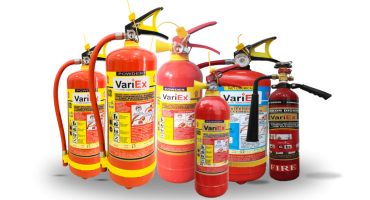 Read more +24 November 2023 in Fire Extinguisher
Read more +24 November 2023 in Fire ExtinguisherWhat types of fire extinguishers are available for different fire classes?
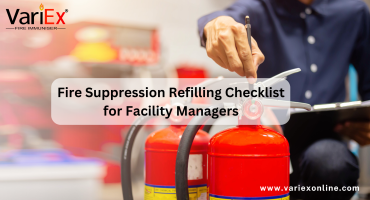 Read more +28 April 2025 in Fire Suppression
Read more +28 April 2025 in Fire SuppressionFire Suppression Refilling Checklist for Facility Managers
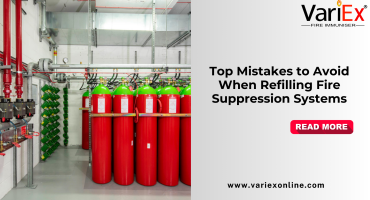 Read more +25 April 2025 in Fire Suppression
Read more +25 April 2025 in Fire Suppression

